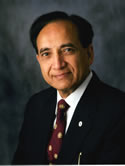Anterior and middle cranial fossa skull base reconstruction using microvascular free tissue techniques: Surgical complications and functional outcomes Journal Article
| Authors: | Chiu, E. S.; Kraus, D.; Bui, D. T.; Mehrara, B. J.; Disa, J. J.; Bilsky, M.; Shah, J. P.; Cordeiro, P. G. |
| Article Title: | Anterior and middle cranial fossa skull base reconstruction using microvascular free tissue techniques: Surgical complications and functional outcomes |
| Abstract: | Surgical ablation for oncologic disease requiring skull base resection can result in both facial disfigurement and a complex wound defect with exposed orbital content, oral cavity, bone, and dural lining. Inadequate reconstruction can result in brain abscesses, meningitis, osteomyelitis, visual disturbances, speech impairment, and altered oral intake. This study assesses the functional outcomes of patients who undergo anterior and middle cranial fossa skull base reconstruction using microsurgical free tissue transfer techniques. Using a prospectively maintained database, a 10-year, single institution retrospective chart review was performed on patients who had surgery for anterior and middle cranial base tumor resections. The type of resection, reconstruction method, complication rate, and functional outcomes were reviewed. From 1992 to 2003, 70 patients (49 men, 21 women) with a mean age of 54 (age 6-78) underwent anterior and middle cranial skull base tumor resection and reconstruction. The patients were divided into the following groups: maxillectomy with orbital content preservation (n = 21), orbitomaxillectomy with palatal preservation (n = 26), and orbitomaxillectomy with palatal resection (n = 23). The average length of hospital stay was 12.6 days. The vertical rectus abdominis myocutaneous flap was used in the majority of cases to correct midface defects. Two flaps required emergent re-exploration; however, there were no flap failures. Early and late postoperative complications were investigated. Cerebrospinal fluid was observed infrequently (7%) and did not require additional surgical intervention. Intracranial abscesses were encountered rarely (1.4%). Patients who had maxillectomy with orbital preservation and reconstruction had minor ophthalmologic eyelid changes that occurred frequently. Patients who required palatal reconstruction had a normal or intelligible speech (93%) and unrestricted or soft diet (88%). Using a multidisciplinary surgical team approach, there is an increasing role for reconstruction of complex oncologic midface resection defects using microvascular surgical techniques. Early/late complications and functional problems after anterior cranial base resections are uncommon when free tissue transfer is used concomitantly. © 2008 Lippincott Williams & Wilkins, Inc. |
| Keywords: | adolescent; adult; child; treatment outcome; aged; middle aged; reconstructive surgical procedures; retrospective studies; major clinical study; microvascular surgery; surgical flaps; conference paper; deep vein thrombosis; microsurgery; medical record review; lung embolism; postoperative complications; cerebrospinal fluid; heart infarction; microcirculation; skull base; skull base neoplasms; myocutaneous flap; blindness; cranial fossa, anterior; maxilla resection; skull tumor; functional outcomes; microvascular free flap; skull base reconstruction; surgical outcomes; anterior cranial fossa; cranioplasty; middle cranial fossa; cranial fossa, middle; wounds and injuries |
| Journal Title: | Annals of Plastic Surgery |
| Volume: | 60 |
| Issue: | 5 |
| ISSN: | 0148-7043 |
| Publisher: | Lippincott Williams & Wilkins |
| Date Published: | 2008-05-01 |
| Start Page: | 514 |
| End Page: | 520 |
| Language: | English |
| DOI: | 10.1097/SAP.0b013e3181715707 |
| PUBMED: | 18434825 |
| PROVIDER: | scopus |
| DOI/URL: | |
| Notes: | --- - "Cited By (since 1996): 9" - "Export Date: 17 November 2011" - "CODEN: APCSD" - "Source: Scopus" |
Altmetric
Citation Impact
BMJ Impact Analytics
Related MSK Work








